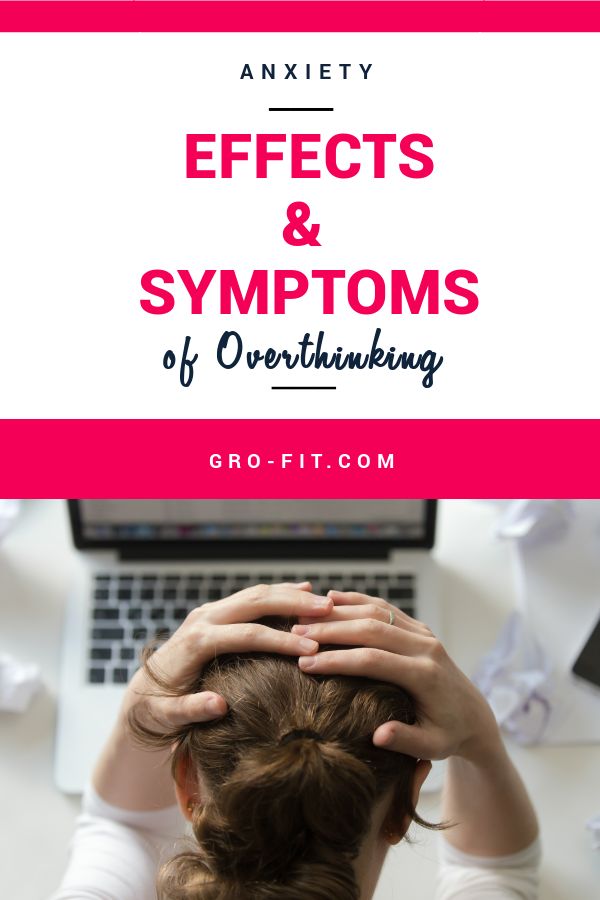Overthinking. We all do it. It can range from doubting the answer you gave on a test to doubting everything and everyone around you. That may sound a little dramatic but chronic overthinking is a gateway drug to anxiety and other mental health issues.
How can you tell if you’re overthinking something?
From an outsider’s perspective, one might think that overthinking is easy to spot. And sometimes it is. When you leave the house in the morning and ask yourself if you remembered to shut off your flat iron… that’s a form of overthinking.
But there’s also the sneaky, hard to catch kind of overthinking.
This kind disguises itself as your inner voice and criticizes every decision you make from the color shirt you picked out this morning to the answer you gave in a class discussion 15 years ago to your very self-worth.
Many people who suffer from this kind of overthinking have dealt with it their entire lives and assume it’s just how everyone experiences self-talk. These people rarely follow their first instinct and often need constant reassurance and answers just to keep their mind at bay and calm.
Stop Overthinking In It’s Tracks
The severity of overthinking is a spectrum with both of the examples above living on opposite ends. Being able to spot overthinking also lives on a spectrum from being able to spot it a mile away to being duped by it 100% of the time.
Unfortunately, the best way to spot overthinking is also the hardest for those who suffer the most.
The key is to be able to step outside yourself and see how your inner voice talks to you. If your inner dialogue is kind and supportive of the decisions you make you are likely in the clear. However, if there’s a lot of questioning and negative self-talk you might find overthinking is a secret, or not so secret, hobby of yours.
What are the mental and physical effects of daily stress and tension?
When you experience stress and tension on a daily basis the effects can be long-term and severe. When it comes to our mental health, chronic overthinking behavior can lead to irritability, anxiety, panic attacks, and depression. It’s surprisingly easy to slip from overthinking to anxiety to full-blown depression. So easy, in fact, that you’ll likely not even realize it’s happening.
Side Effects Of Overthinking
Equally as important are the possible physical side effects of stress. These effects range from headaches and stomach aches to increased blood pressure and even increased risk for cancer and other fatal diseases. It’s also been documented that high levels of stress in pregnant women may trigger changes in their children as they grow, specifically behavioral and developmental issues. Other stress-related health risks include:
- Damaged heart muscles (from faster heartbeat, high blood pressure, etc)
- Breathing problems
- Extreme fatigue
- Muscle aches and pains
- Increased risk of fatal diseases (cirrhosis, lung disease, suicide)
- Impotence, decreased sex drive
- Behavioral and developmental issues during pregnancy (women who are stressed)
- Gum disease, teeth grinding
- Weight gain
- Premature aging
- Weakened immune system
- Breathing problems
What can you do about it?
Combating overthinking can be a daunting task. It takes practice and vigilance along with patience and being able to cut yourself some slack. Stopping the overthinking cycle won’t happen overnight and will take years if not decades to master. This isn’t said to discourage you, but to prepare you. Here are some ways to help you along your journey to eliminate overthinking.
Awareness
Whenever you find yourself doubting or feeling stressed or anxious, step back and look at the situation and how you’re responding to it. That moment of awareness is the seed of the change you want to make.
Distraction
Things like meditation, dancing, exercise, exploring a new hobby, cooking, and painting can distance you from the issues enough to shut down the overanalysis. Happy, positive, and healthy thoughts can do the same. When all else fails, think of baby animals.
Perspective
Ask yourself, “will this matter in five years?” Or, for that matter, next month? Just asking this simple question can help shut down overthinking
Acceptance
Overthinking is often based on feelings of inadequacy. If you notice that inner voice telling you that you aren’t good enough, smart enough, hard-working enough, or dedicated enough, tell it to shut up! Once you’ve given something your best effort, accept it and move on. While success may depend in part on things you can’t control, you’ve done what you could do.
Assistance
Seeing a therapist or mental health professional used to have a huge stigma attached to it. Nowadays, that mentality is changing. Seeing a professional doesn’t mean something is wrong with you. It just means that you are willing to seek help from those who have the tools that you need to live your best life.














